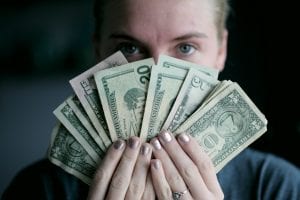The good news is that there is hope and looking to become a better saver is one great way to lower a person’s financial stress during this time.
It has affected every American in the United States. Whether you are an individual who has been personally affected by the coronavirus or you’re a bystander waiting for the pandemic to die down, you have been affected. Covid-19 seems to have single-handedly turned many American lives upside-down. Due to many businesses being closed down, over 36 million Americans are now unemployed. People seem to now depend on both stimulus and unemployment checks to survive during their day to day lives. Depending on your household and marital status, this means that many individuals in single-family homes are getting back roughly 1200 dollars with the stimulus check. Outside of 1200 a month, people who qualify for unemployment can get approximately 600 a week back into his or her bank account. This may be great for individuals who are eligible for unemployment. However, what about the people who were already unemployed before the pandemic hit?
The unfortunate truth is that this category of individuals would only qualify for the stimulus check. This amount of money may become worrisome for these individuals because it may be the only source of income coming into his or her bank account. Living off of 1200 a month is possible, but the problems start to arise when bills such as food, rent, and phone bills begin to rear its ugly head. So, the question of the day might be, what can these individuals do? How can a struggling individual get his or herself back up so that he or she is no longer keeping his or her head above water? The good news is that there is hope out there for these individuals. Below are a few insightful ways coronavirus has changed the game financially and how Americans with bad savings habits can survive in an already turbulent climate.
How Has Covid-19 Affected Your Spending?
Before jumping into how to survive financially during this nationwide pandemic, it may first be necessary to discuss how Americans respond to the extra financial stress. Believe it or not, roughly 35% or 1/3 of Americans now buy unnecessary items out of pure nervousness. As you may be able to guess, many of these purchases seem to have been done online. With most businesses shutting down due to the lockdown, many individuals seem to have leaned on delivery chains to provide them with essential and non-essential goods. Some individuals even choose to look to local mom and pop shops to do their shopping, while others sought more well-known chains to stockpile to prepare for the worst. No matter what type of spender you became during this pandemic, it’s essential to know how to keep some of that money in your pocket.
What Does It Take to Save Money?
Even with all of this spending taking place, there seems to be little to no money being made. Of course, this depends on several things, such as whether or not you are an essential worker to whether or not you qualify for a stimulus or unemployment check. During moments like these, the first step may be to start tracking your income and documenting your expenses. An excellent tool for accomplishing this type of documentation may be cash flow banking. This type of banking can be great for individuals looking to make investments, have more control over their finances, or looking to create more cash flow.

Another helpful tip may be making a list of your subscriptions to eliminate any unnecessary financial stress. Food costs might be another real concern for individuals who are looking to save money. When looking to save money on the expense of food, growing your own food, and cooking at home every night can be some great ways an individual with bad savings habits can survive in a pandemic.
The Sum of It All
As previously stated, everyone has been affected by the coronavirus. It started as an attack on the immune system, and it now seems to be affecting bank accounts. This pandemic appears to have affected every type of spender. The good news is that there is hope and looking to become a better saver is one great way to lower a person’s financial stress during this time.

Join the conversation!